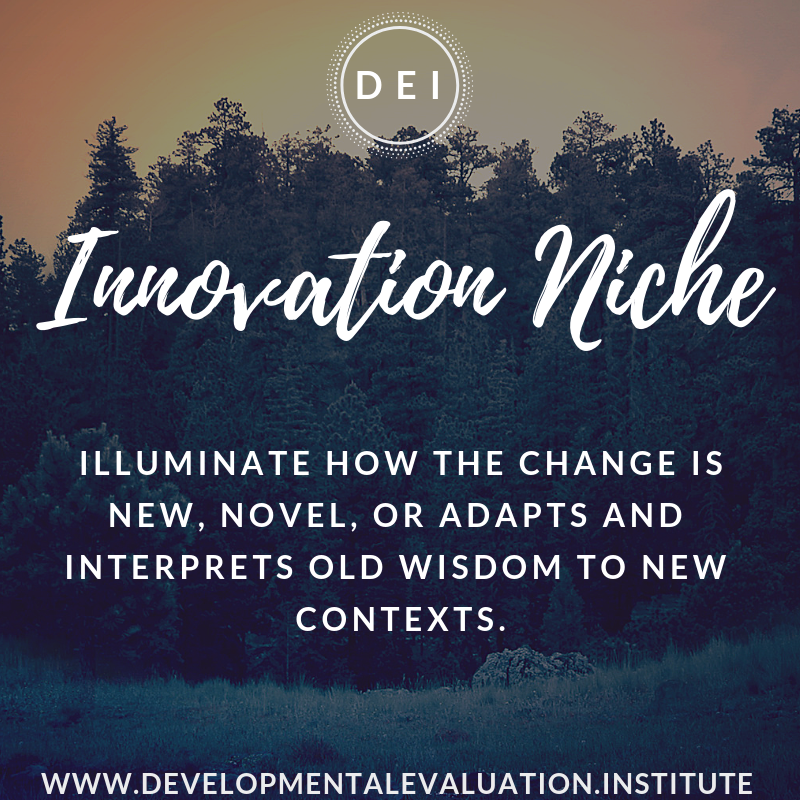Asks probing evaluation questions; thinks and engages evaluatively; questions assumptions; applies evaluation logic; uses appropriate methods; synthesises and makes meaning from a values inspired framework and stays empirically grounded.
Developmental Evaluation it not evaluation lite. To ensure evaluation rigour, evaluators should have deep methodological toolkits and be flexible in their application of evaluation tools, methods and approaches to best meet the needs of key stakeholders, communities and the innovation. Evaluators need to be able to couple their choices of methods and approaches with context.
Typically in a Developmental Evaluation, an adaptive action cycle of inquiry – What, So what, Now what – is an essential process that allows for shared emergent and iterative questioning, reflection and action.
Evaluative reasoning and thinking is an essential part of Developmental Evaluation i.e., combining evidence and values to reach conclusions about quality and value. It is with rigorous thinking that rigour is displayed.
Questions to ask ourselves:
What kinds of thinking are we familiar with?
How often do we question the thinking that is needed in evaluative contexts?
What perspectives and values need to be included in decisions about evaluative criteria, design and synthesis?






